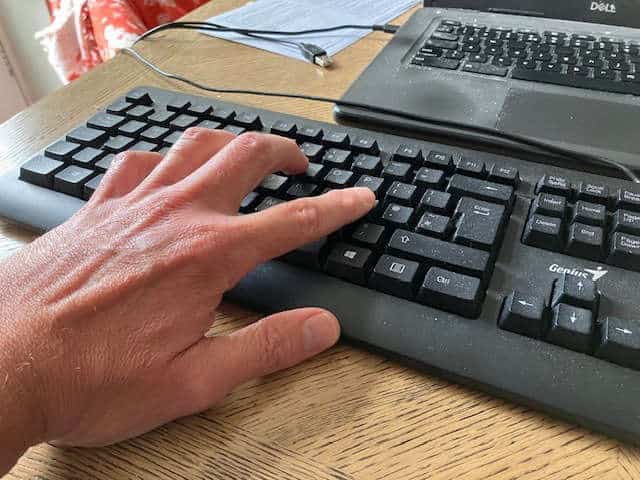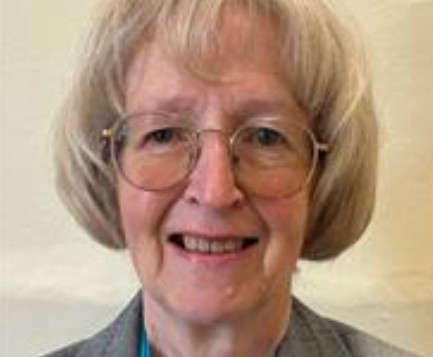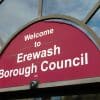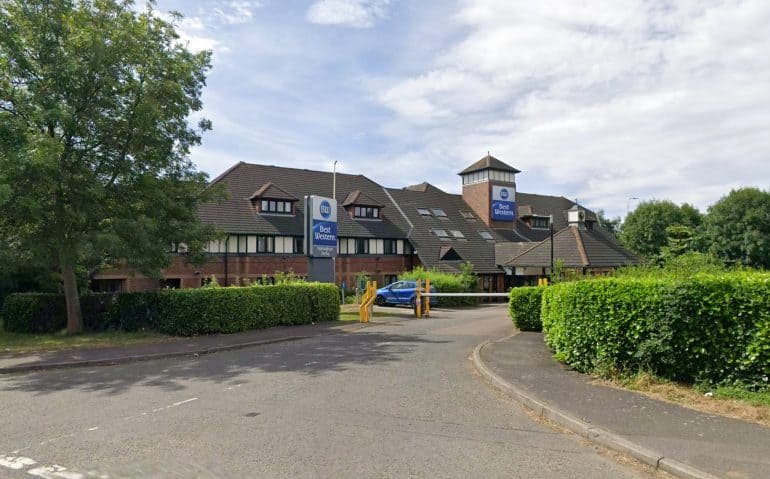-
 play_arrow
play_arrow
Erewash Sound Love Music - Love Erewash
-
 play_arrow
play_arrow
Free essential digital skills course starts in February - Olujuwon Omotoba Erewash Sound
Derbyshire councillor says more funding is needed for faster broadband for rural areas
today22 October 2025

A Derbyshire County Councillor has stressed more funding and support is needed to ensure every rural and hard-to-reach home and business in the county has faster broadband after the authority agreed to invest nearly £1m to improve digital connectivity in its poorly connected communities.
The Reform-uk controlled council’s Cabinet approved its Digital Connectivity Delivery Plan for 2025 – 2027 at a meeting on October 16 with the reallocation of £500,000 of earmarked reserves towards the top-up element of the Building Digital UK’s Gigabit Broadband Voucher Scheme alongside allocating a remaining £400,000 from the Digital Derbyshire reserves to support rural connectivity.
Both contributions will support the delivery of two council grant schemes, the Gigabit Fibre Connectivity Grant and the Interim Connectivity Grant, under a Rural Digital Connectivity Grant Programme, but Cllr Carol Wood told the Cabinet meeting that to ensure every home and business in the county has a fast rural broadband connection more funding and support is still needed.
 Cllr Wood, (pictured right: credit: DCC) Cabinet Member for Net Zero and Environment, said: “A ten-and-a-half million pound investment is required. The average cost is £3,500 per property but it can exceed £10,000 per property so it is not something Derbyshire County Council can deliver alone without funding and support.”
Cllr Wood, (pictured right: credit: DCC) Cabinet Member for Net Zero and Environment, said: “A ten-and-a-half million pound investment is required. The average cost is £3,500 per property but it can exceed £10,000 per property so it is not something Derbyshire County Council can deliver alone without funding and support.”
Responding to a question from opposition Conservative Group Leader, Cllr Alex Dale, about how and when the council can ensure every home and business in the county has fast reliable broadband, Cllr Wood said the council recognises how important this need is for rural areas and its ambition is to achieve 100 per cent coverage but further funding and support is needed.
She told the meeting that it is essential Derbyshire’s rural areas get improved broadband activity not least to be able to access health services.
Cllr Wood explained the Labour Government’s Project Gigabit is working to help rural and hard-to-reach communities to access fast, reliable gigabit-capable broadband and it expects 99 per cent of premises to have access to gigabit-capable connection by 2032 but not every property is commercially viable for this scheme.
She added: “This does not guarantee comprehensive coverage across Derbyshire so further targeted interventions are likely to be necessary.”
However, Cllr Wood said the Cabinet’s latest digital connectivity report and the council’s proposed £900,000 investment includes satellite and 4G connectivity to ensure business are not left behind.
The report stated that although gigabit-capable broadband has been significantly increasing across the county approximately 3,039 premises are still receiving less than 10mbps which is regarded as very slow.
These include homes and businesses which rely on connectivity to engage in modern society and who are at risk of being left behind, according to the report, and after the conclusion of the Superfast programme with BT it was clear that further intervention was needed to try and address the situation.
The report also stated that building full fibre connections, especially in rural hard-to-reach areas, can be extremely expensive and tackling this issue in a meaningful way requires additional resources but it added that some Government intervention can be anticipated further down the line.
Cllr Wood also confirmed that the county council is continuing to push the East Midlands Combined County Authority to prepare proposals for its digital programme and identify appropriate funding to help improve broadband speeds in more homes and businesses in Derbyshire in the future.
Derbyshire County Council has stated that around 32,000 homes and businesses across the county still receive less than 100mbps in areas with no prospect of commercial providers rolling out full fibre within the next three years.
The approximate 3,039 premises, who still receive very slow speeds of less than 10mbps, struggle with everyday online activities which for some can make streaming digital TV channels and doing online banking virtually impossible, according to the council.
However, the council has taken a significant step forward after agreeing to use funding from its Digital Derbyshire reserves to set up the two grant programmes as part of the Rural Digital Connectivity Grant Programme to boost broadband speeds in premises with some of the poorest performing internet connections.
The Gigabit Fibre Connectivity Grant will provide a full fibre network to clusters of hard-to-reach premises which are close to one another and the Interim Connectivity Grant will focus on providing short-term solutions such as satellite or mobile broadband for properties.
The Interim Connectivity Grant will help properties in remote areas where delivery of a fixed full fibre network is too expensive and there is no commercial roll-out planned or where properties currently use outdated copper-only lines which are only capable of a maximum of 24mbps.
Cllr Wood said: “Decent broadband is essential to every-day life and something many of us take for granted. But we know that having a reliable internet connection is a postcode lottery with many businesses and residents in rural areas still losing out.
“By launching these two grant programmes, we can help improve broadband speeds for lots of local people and help prevent rural communities from falling behind in the digital divide.”
The council stated that more information about the grant schemes will be publicised on the Digital Derbyshire website when it becomes available.
Written by: Erewash Sound
Similar posts
Sponsors
ON AIR
SEARCH
CATEGORIES
RECENT POSTS

Borough Councillors back plans to reintroduce a local St George’s Day parade

£500m Budget sets out major transport and growth investment across the East Midlands

Borough council rejects move to lobby Government for timeline to cease use of hotel to house asylum seekers

Borough Council ceases “vile” social media platform use for “unchecked spread of misinformation, racism and transphobia”

Police to speed up response times to catch more crimimals and protect communities
103.5 & 96.8 FM
LOVE MUSIC
LOVE EREWASH
Office: 0115 888 0968
Studio: 0115 930 3450
Erewash Sound, The Media Centre, 37 Vernon Street, Ilkeston, DE7 8PD
© Copyright 2026 Erewash Sound CIC. All Rights Reserved. Company Number 6658171.






